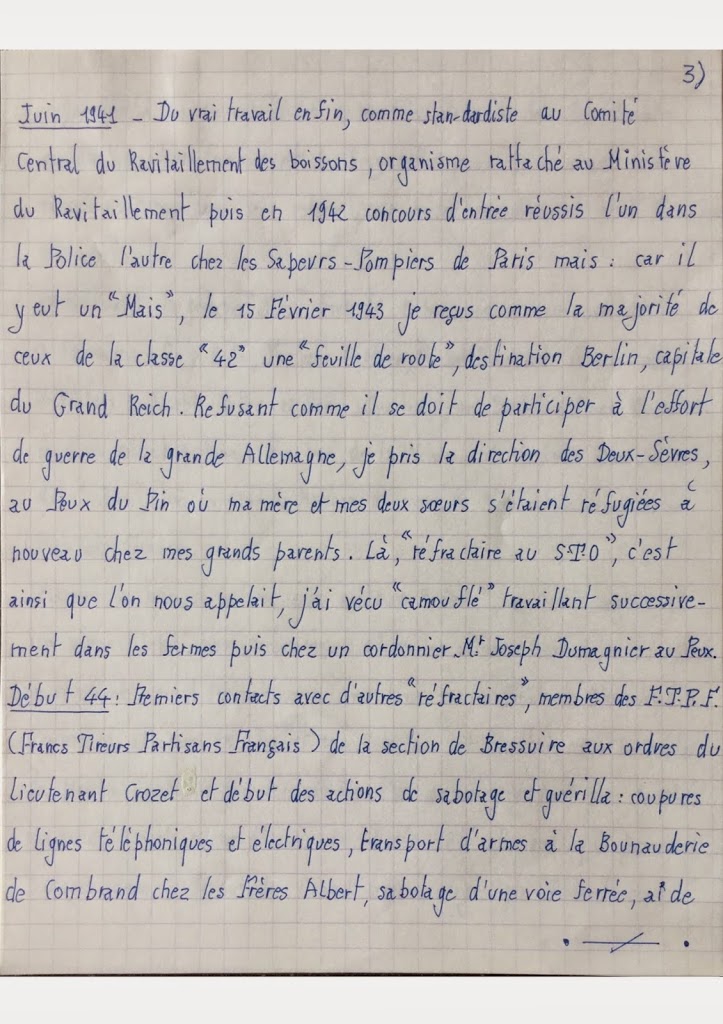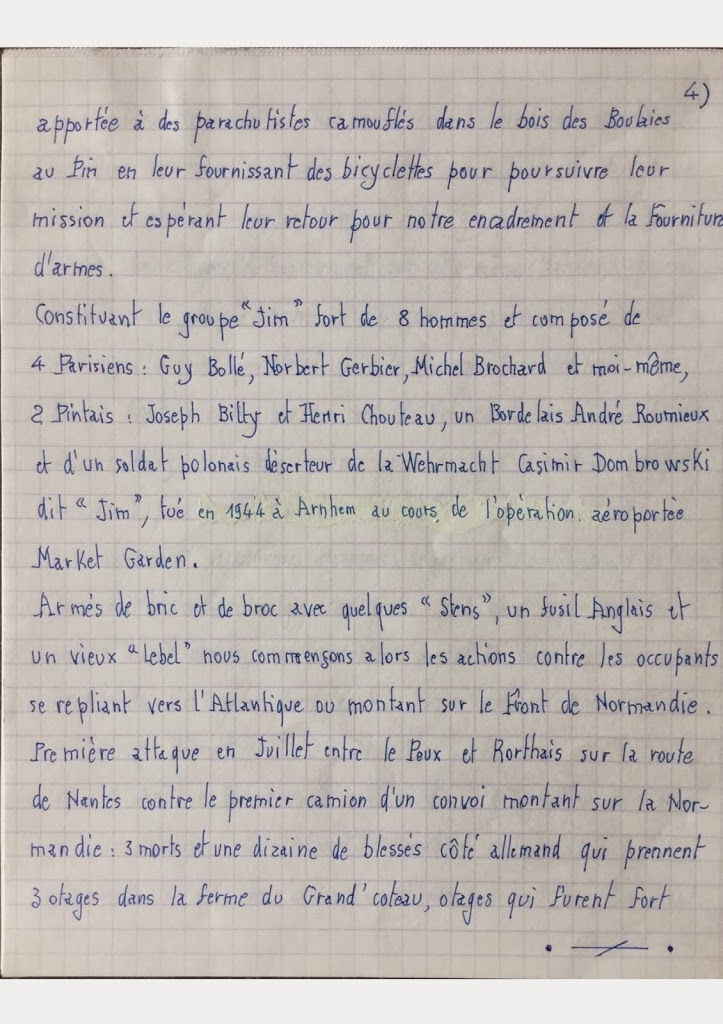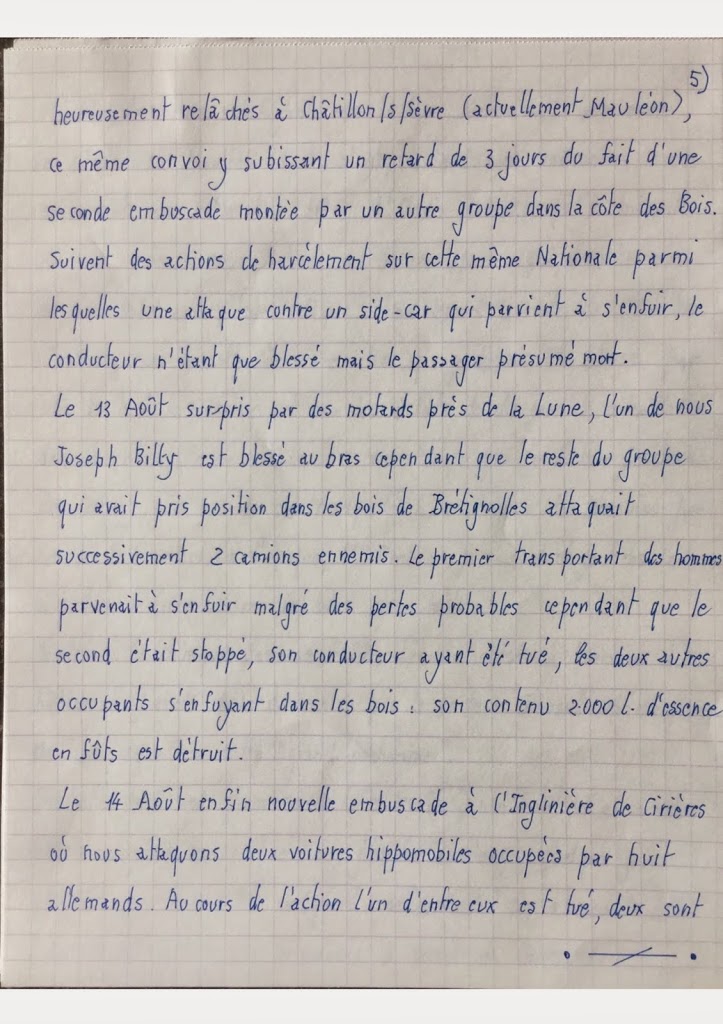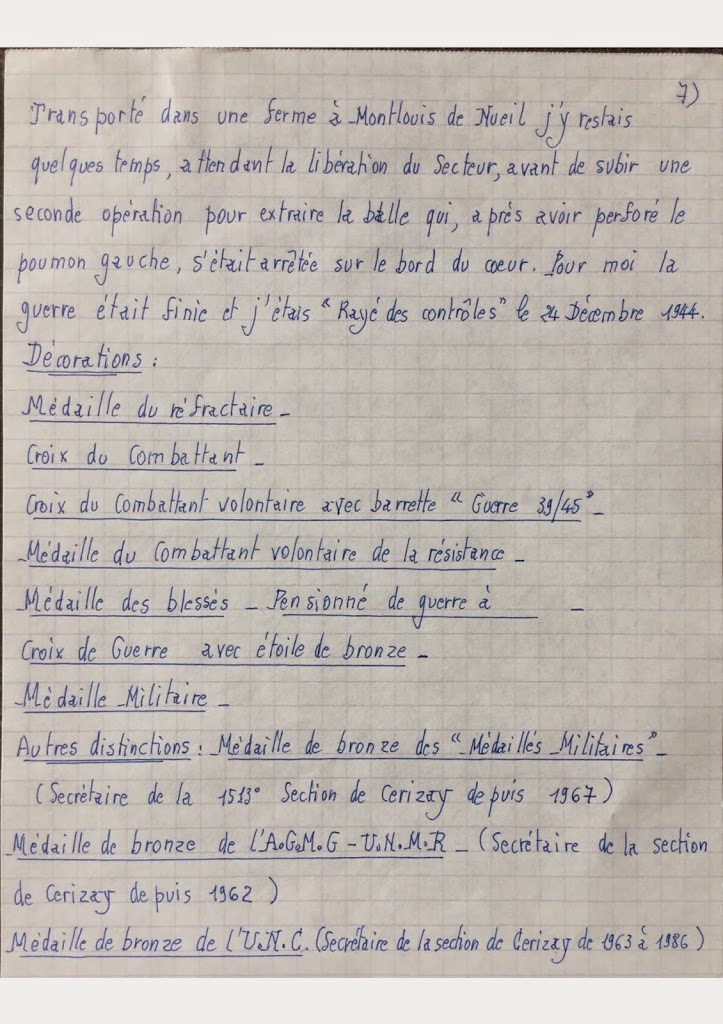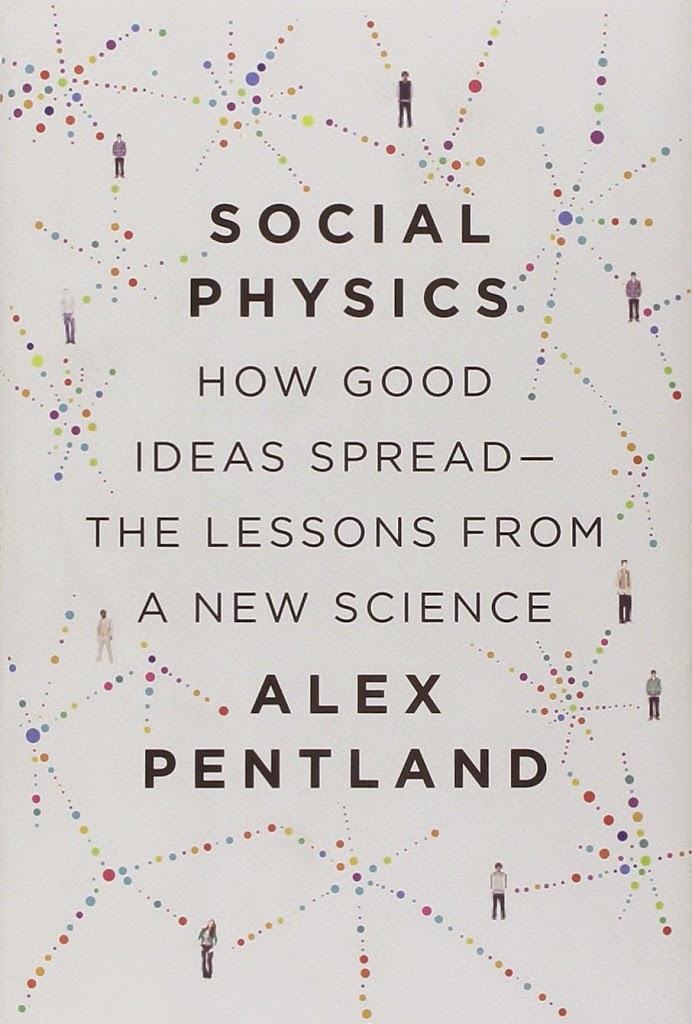His name was Charles Albert. He was a gentle, funny, loving man. He had an influence on the people around him that few famous people or big leaders have had. His “claim to fame” was his fight in the french resistance, and he jotted down a few pages on that after he retired, which my grand-mother (another amazing person), has kept very preciously.
Category: Uncategorized
“Fixing the world” is essentially a long term endeavor.
We should focus any “improve the world” action on long term levers, which will not fix everything in one go, but will have tremendous force over one generation. eg education of girls.
Transparency and high-tech monitoring – a silver bullet against human rights abuses ?
There is a view that we would put high-tech gizmos everywhere in the world to monitor what’s happening, as a way to prevent abuses of human rights. This seems like a silver bullet, but is it really ? We are seeing so many images now of human rights abuse around the world, that our inability to fix the issues might just desensitize us to these, and accomplish the very opposite of what we would like to achieve.
A new kind of social contract – “opt-in communities” vs geographical nations.
Could we in the modern world create new kinds of communities, gathering individuals who “opt-in” and adhere to a set of agreements ? These would define the rights of the community and of the individual. The community could define criteria for accepting folks in, but there would be a non-negotiable right for members to “opt-out” freely if they so choose.
This would gradually erode the legacy we have of geographically and ethnically defined communities, and move another step closer to true individual freedom of choice. It would also create stepping stones towards full “Human Rights”, for countries like China, by focusing on ensuring a small subset of “non-negotiables” eg no torture, freedom to leave a community, but leaving the other aspects of community policies to be defined by each particular culture or community.
Keeping a nation together.
Countries where different groups become isolated will have trouble with their democratic institutions. eg in France, folks who have permanent jobs cannot be fired, those who are on temp jobs stay on those or are unemployed and cannot access permanent jobs, people working in public service do a career there and never work in the private sector … All these create groups with irreconcilable differences of interests …
Making the world a better place.
I have been thinking of what “making the world a better place” means. We aspire to that, but lack of a proper definition does not help – I obviously don’t hope to find a definition that everyone will agree with, but having one for myself would be a good start.
I subscribe to a world with the following characteristics : freedom from dogma, equal access for everyone to opportunities to improve their lives, focus on scientific progress …
Some of these ideas are as fundamental as freedom of religion (or of having no religion), belief that humans are fundamentally all equal in rights (and that any differences we make between various groups are mostly a reflection of our tendency for tribal behaviors) – and by fundamental beliefs I mean that I will have no respect for, and will fight if required, people who uphold the opposite beliefs (fundamentalism, racism …). But some other beliefs are very personal and I don’t expect others to be of the same mind (by which I guess I mean that I will respect other points of view) : belief that a secular society is better for everyone, that technological progress can and will generally be used for the overall good of people…
I just read the declaration of human rights. It is a good start, but it is extremely vague when it comes to defining socially acceptable behaviors. And it defines lofty goals for social support to individuals that are extremely difficult to define in practical terms, and different societies at different stages of development, or with different social beliefs, will need different rules there.
Does this require a new kind of social contract ?
The Myth of Heroism – individuals’ real impact.
We still believe individuals drive results. We have the heuristics of the hero leading the charge. Reality is a hero is nothing alone. Serendipity and group dynamics are much more important.
Social Sciences becoming true sciences – a key opportunity for our future.
I have long been thinking that Social Sciences need to become true sciences, subject to experimental verification. The counter argument so far has been that the underlying subjects are too complex and evade modelling. But before we figured out quantum mechanics and its complexities, we had to fumble our way starting with the planetary model of the atom. So social sciences should go back to basics and first try to model simple phenomenons.
Now the emergence of smartphones and explosive growth of sensors is finally providing new means of quantifying social sciences. I have been reading the book “Social Physics: How Good Ideas Spread—The Lessons from a New Science” by Alex Pentland. It’s a difficult read as the style is really poor, but the content is fascinating.
Amazon Link here.
Now think of the implications – if we knew how to really spread memes that drive peaceful cooperation towards economic prosperity in a society, we could make the rebuilding of broken states like Iraq a matter of years instead of generations.
The counterpoint is obviously that the same techniques can be used to make Nazi propaganda seem crude and inefficient. Recent examples, such as Italy under Berlusconi and Hungary under Victor Orban, show that modern democracies do allow for concentration of media and educational powers in the wrong hands. Imagine what they could do with the power of truly impactful social sciences.
So this could be the most dramatic change in human history. We learnt to master the material world around us, we have now the opportunity to master our own individual and group Psyche. We still behave very much like the primates we evolved as, so getting a scientific grip on what drives our motives, behaviors and actions would truly be revolutionary and evolutionary !
Organizations as Information Processing engines.
Organisations are Information Processing Engines. Key ingredients : Time utilization, flow of information between groups, leaders individual characteristics, groups behaviors (reaction to orders, information retention…).
Interesting Concepts I learnt of in 2014.
Confabulation : (Wikipedia) In psychology, Confabulation is a memory disturbance, defined as the production of fabricated, distorted or misinterpreted memories about oneself or the world, without the conscious intention to deceive. Confabulation is distinguished from lying as there is no intent to deceive and the person is unaware the information is false.
(“You are now less dumb”, David McRaney) Neuroscience now knows that confabulations are common and continuous in both the healthy and the afflicted.
Over Fit of Model : example Fukushima where available data showed fewer highest intensity earthquakes than predicted by the Gutenberg-Richter fit. Japanese experts concluded that there was an inflection in the curve, and rationalized that the geological characteristics of the region explained that. As a result, the estimate for the probability of a magnitude 9 event was 1 in 13,000 years vs the Gutenberg-Richter prediction of 1 in 300 years …
Complex System : example heap of sand. Each grain you add from top will either stay in place or go down the heap. Once in a while one will trigger a sand avalanche. Key property : large periods of apparent stasis, sudden and catastrophic failures. Not random, but so irreducibly complex that cannot be predicted beyond a certain level. Differs from Chaos theory. Theoricized by Physicist Per Bak.



